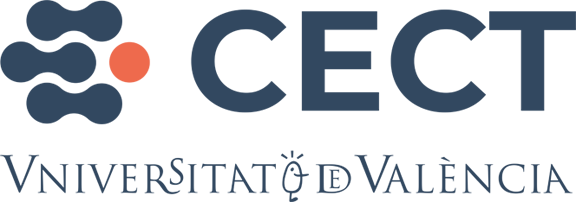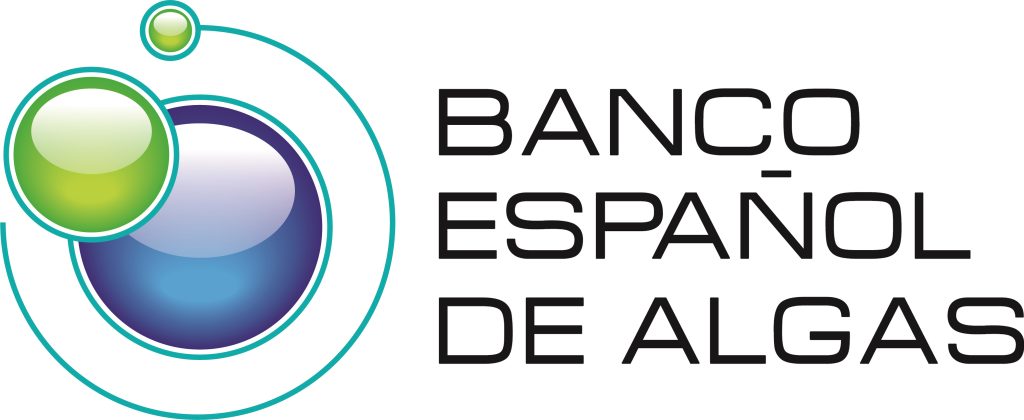National Partners

Spanish Type Culture Collection (CECT), University of Valencia (UV)
The CECT is a service of the University of Valencia and the only public Microbial Biological Resource Centre (mBRC) in Spain that acts as a depository and supplier of bacteria, archaea, yeasts, and filamentous fungi. It has been involved in MIRRI since its inception and currently hosts the Spanish Node of MIRRI-ERIC. The mission of the CECT is to support microbiology-based research and it offers, among other services, the identification and characterization of microorganisms.
The CECT contributes to the network with its 12 years of experience in the development and consolidation of MIRRI, having played a key role in projects that supported its implementation, mainly the MIRRI preparatory phase (GA 312251) and the more recent IS_MIRRI21 (GA 871129). It also brings its portfolio of research services, such as the deposit and preservation of bacteria, archaea, yeasts, and filamentous fungi; identification and characterization of microorganisms using classical microscopy and culture techniques as well as advanced molecular methods (NGS, MALDI-TOF MS, FAME-MIDI); microbial taxonomy; and strain characterization for the search or improvement of biotechnological applications. In addition, it provides support, advice, and training on aspects related to quality management in collections and the use and handling of microbial strains in compliance with legislation (e.g. Nagoya Protocol, deposit of microorganisms for patent purposes, or biosafety).
Contact: Rosa Aznar Novella (rosa.aznar@uv.es) and Aurora Zuzuarregui (aurora.zuzuarregui@uv.es)

Spanish Bank of Algae (BEA), University of Las Palmas de Gran Canaria (ULPGC)
The Spanish Bank of Algae (BEA) is a research center of the University of Las Palmas de Gran Canaria (ULPGC) and the only official bank in Spain that acts as a depository and supplier of algae. BEA is registered with the World Data Centre for Microorganisms (WFCC-MIRCEN; No. 837) and is a member of both ECCO and WFCC. In addition, BEA is accredited by WIPO as an International Depositary Authority (IDA) for patent purposes under the Budapest Treaty. BEA is also a member of European research infrastructures such as MIRRI (Microbial Resource Research Infrastructure) and EMBRC (European Marine Biological Resource Centre), as well as the BIOASIS-GC transfer platform.
BEA contributes to the network through its experience as part of the Spanish Node of MIRRI-ERIC and as a partner in the IS_MIRRI21 project. It brings more than 35 years of expertise in the conservation, characterization, and study of the physiology, cultivation, and biotechnological applications of algae for educational, research, and transfer purposes; offering services and products to these sectors while promoting research. Its expertise also includes the development of quality management systems for algal culture collections as well as a deep understanding of the relevant legislation.
Contact: Antera Martel Quintana (amartel@marinebiotechnology.org) and Belén Baena (belen.baena@marinebiotechnology.org)

Collection of Filamentous Fungi and Yeasts, Instituto de Salud Carlos III (ISCIII)
Instituto de Salud Carlos III (ISCIII) is the leading Public Research Organization in Spain, dedicated to funding, managing, and conducting biomedical research. With over 30 years of experience, ISCIII has been at the forefront of research and the provision of key services in life sciences and health. Its primary mission is to support the development of scientific knowledge in health sciences and to contribute to innovation in healthcare and disease prevention. ISCIII’s Centers and Units, recognized nationally and internationally, carry out
research activities in biomedicine, environmental health, and public health. Among them is the National Centre for Microbiology (CNM), devoted to basic and applied research in the prevention, diagnosis, and treatment of human infectious diseases.
ISCIII contributes to the network by providing diagnostic and reference services related to human infectious pathogens in addition to its microbial collection. Specifically, the Reference and Research Laboratory in Mycology offers a wide range of diagnostic services, including identification and antifungal susceptibility testing, therapeutic drug monitoring of antifungals, antibody detection, and typing of major human fungal pathogens. To ensure the quality of its services and resources, CNM maintains a rigorous quality management system aligned with international standards such as ISO 17025, ISO 9001, and ISO 15189 under flexible scope. LRIM has been accredited by ENAC under ISO 15189 since 2008, with all services included in the accreditation. ISCIII has been actively involved in numerous European and international initiatives, collaborating with other microbial Biological Resource Centres (mBRCs) to share best practices and experiences. Through these collaborations, ISCIII acts as a bridge between Spain and international efforts in this field, enhancing Europe’s competitiveness in biotechnology and public health.
Contact: Ana Alastruey-Izquierdo (anaalastruey@isciii.es)

Natural and Forest Resources, Andalusian Institute of Agricultural, Fisheries, Food, and Ecological Production Research and Training (IFAPA)
The Andalusian Institute of Agricultural, Fisheries, Food, and Ecological Production Research and Training (IFAPA) is a sectoral entity under the Ministry of Agriculture, Fisheries, Water, and Rural Development of the Regional Government of Andalusia. It was established to address the needs of the agricultural, fisheries, aquaculture, and food sectors in Andalusia. Its mission is to contribute to the modernization of these sectors through research, development, knowledge transfer, and training, while ensuring sustainability. IFAPA places particular emphasis on improving the management of natural resources. This includes, among other activities, the bioprospecting of microbial communities associated with Andalusian agroecosystems, the ex-situ characterization and conservation of microorganisms, and their subsequent biotechnological exploitation. This strategic approach provides IFAPA with outstanding scientific and technical capabilities, infrastructure, and microbial resources in the field of agromicrobiology.
Contact: María Camacho Martínez-Vara de Rey (mariag.camachomartinez@juntadeandalucia.es) and María del Carmen Montero-Calasanz (mariac.montero.calasanz@juntadeandalucia.es)

Fundación MEDINA – Centre of Excellence in Innovative Medicines Research in Andalusia
The Andalusian Institute of Agricultural, Fisheries, Food, and Ecological Production Research and Training (IFAPA) is a sectoral entity of the Regional Government of Andalusia whose mission is to address the demands of the Andalusian agricultural, fisheries, aquaculture, and food sectors and to contribute to their modernization through research, development, transfer, and training, while ensuring sustainability. Since its creation, IFAPA has paid special attention to improving the management of natural resources, particularly the bioprospecting and valorisation of microbial communities associated with Andalusian agroecosystems.
IFAPA contributes to the network with more than 3,600 strains selected for their agrobiotechnological potential in relation to plant growth promotion, biocontrol of diseases and pests, soil bioremediation, and stress adaptability. It also provides scientific and technical expertise in the following fields: (1) bioprospecting and preservation of microorganisms of agricultural and environmental interest; (2) microbial systematics and functional genomics; (3) formulation, evaluation, and monitoring of microbial inoculants; (4) diagnosis of fungal diseases in plants; and (5) development of molecular markers.
Furthermore, IFAPA offers rare infrastructure within the Spanish microbial resources landscape, such as a high-throughput Omnilog plate reader, greenhouses, and experimental plots. Finally, IFAPA’s strategic approach provides the network with direct access to a broad network of end-users and both national and international collaborators.
Contact: Olga Genilloud Rodríguez (olgagenilloud@medinaandalucia.es)










